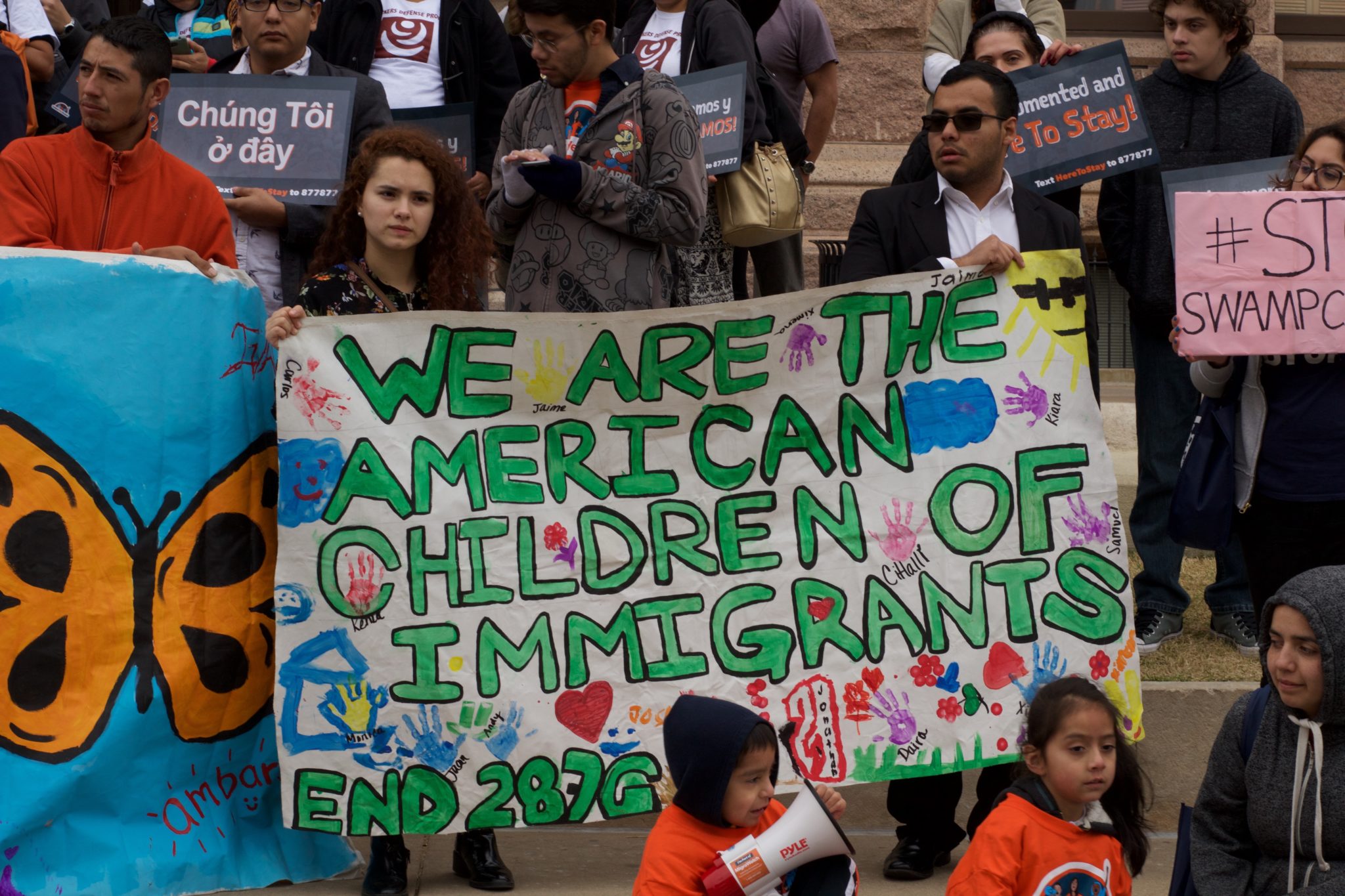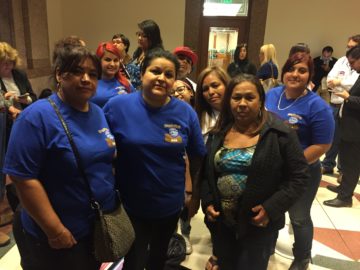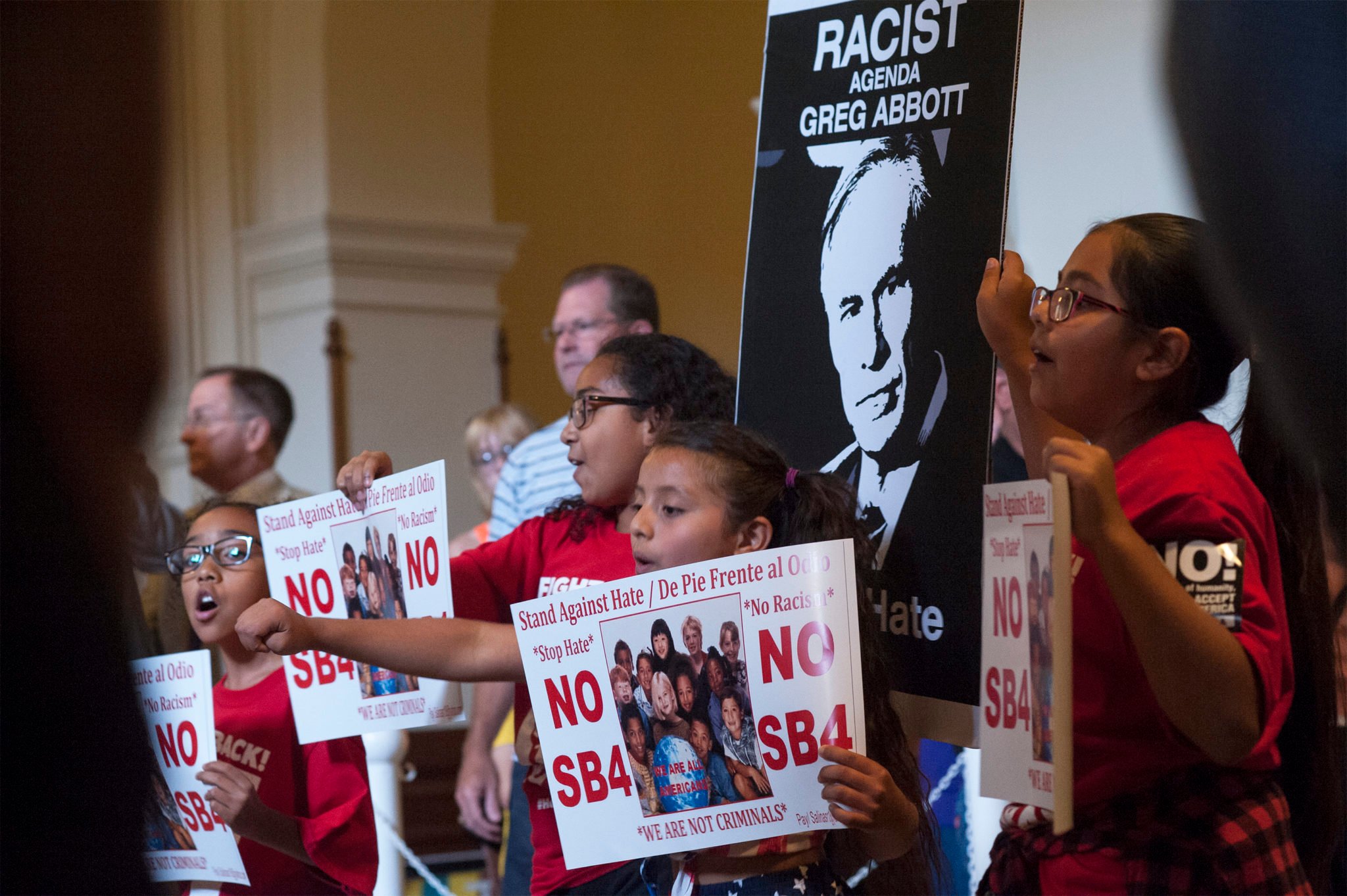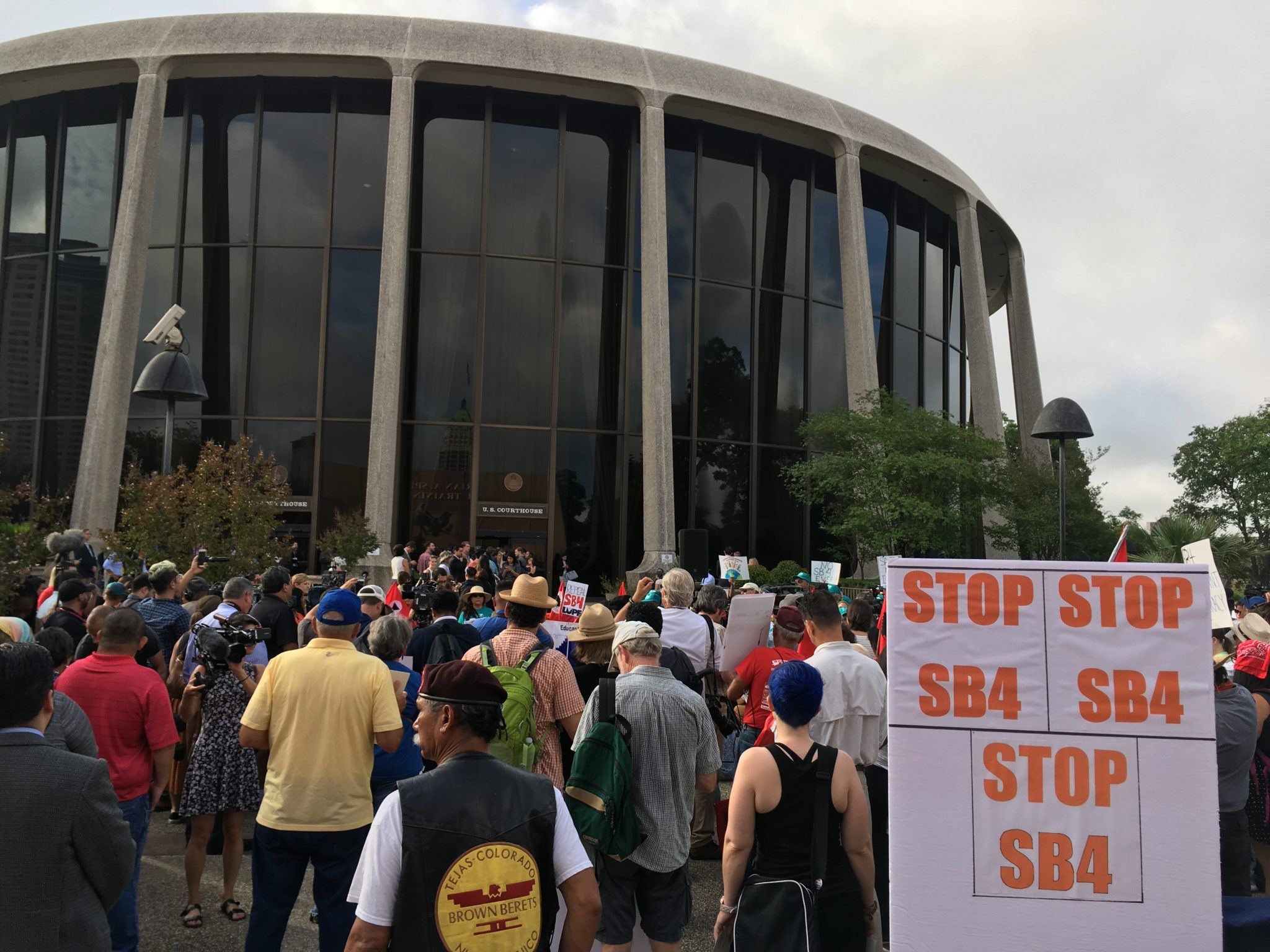
Video: Opponents Say Anti-Sanctuary Cities Bill Would Separate Families
Of the 638 people who registered a position on Senate Bill 4 Wednesday, only 11 supported it.
After a nearly 10-hour bus ride from El Paso, Maria Roa and 36 other members of the Border Network for Human Rights arrived at the Capitol at 8 a.m. Monday morning. The group joined hundreds of others to testify against Senate Bill 4, the so-called anti-sanctuary cities measure, during its first House committee hearing.
More than 600 people signed up to testify on the controversial proposal, which would cut state grant funding from local governments that don’t fully cooperate with federal immigration authorities and increase collaboration between local law enforcement and federal immigration agents. The overwhelming majority of speakers, including Harris County Sheriff Ed Gonzalez, Houston Police Chief Art Acevedo, Interim Austin Police Chief Brian Manley and other law enforcement officials from Dallas and San Antonio, opposed the bill.
Of the 638 people who registered a position on SB 4, only 11 people supported it. The crowd in line to testify waited for several hours before testimonies began, and they alternated chants from “No ban, no wall, we demand justice for all!” and “El pueblo, unido, jamás será vencido!” to “Abbott, escucha! Estamos en la lucha!”
Some Democratic lawmakers have called the measure racist anti-immigrant and “racist” and law enforcement leaders say it would create barriers to investigating crimes in immigrant communities.
https://twitter.com/lyannealexia/status/842113660994621440
State Representative Charlie Geren, R-Fort Worth, proposed an amendment to the version of the bill that sailed through the Senate last month that would only allow law enforcement to inquire about a person’s legal status if they have been arrested, not lawfully detained. The change, which was not voted on Wednesday, is likely an attempt to alleviate concerns about SB 4 deputizing local police as immigration officers and racial profiling.
But many of the people who testified against the measure, which was declared an emergency item by Governor Greg Abbott, worry about its impact on families.

“It’s affecting all of us. It’s separating families. The police are doing the job of federal immigration, which is not their job. When we have an emergency, who are we going to call?” Roa told the Observer. “This bill is causing racism and hatred, and our children are afraid.”
She’s speaking from experience. Two years ago, her husband, Victor, was deported to Mexico after being stopped by Department of Public Safety troopers while on his way to work. According to Roa, the troopers handed her husband over to Border Patrol agents. Victor has been living in Juarez since he was deported. Roa and their five children stayed behind in El Paso.
“He used to take my daughter to school every morning,” Roa said. “He was our support system. And now, it’s very difficult for me to provide a better life for my children.”
Collaboration between DPS and federal immigration agents has ramped up in non-border regions of the state since President Trump’s election, immigration attorneys say. If passed, SB 4 would keep that trend growing.
House State Affairs Committee Chair Byron Cook said that SB 4 and the proposed amendments would not be put to a vote on Wednesday, but the proposal is largely expected to move past this legislative hurdle because the committee is made up of eight Republicans and five Democrats. However, its chances of passing the full House, and how different it looks from the Senate’s version, remains to be seen.
Read more Observer coverage on the so-called sanctuary cities debate at the Texas Legislature.


